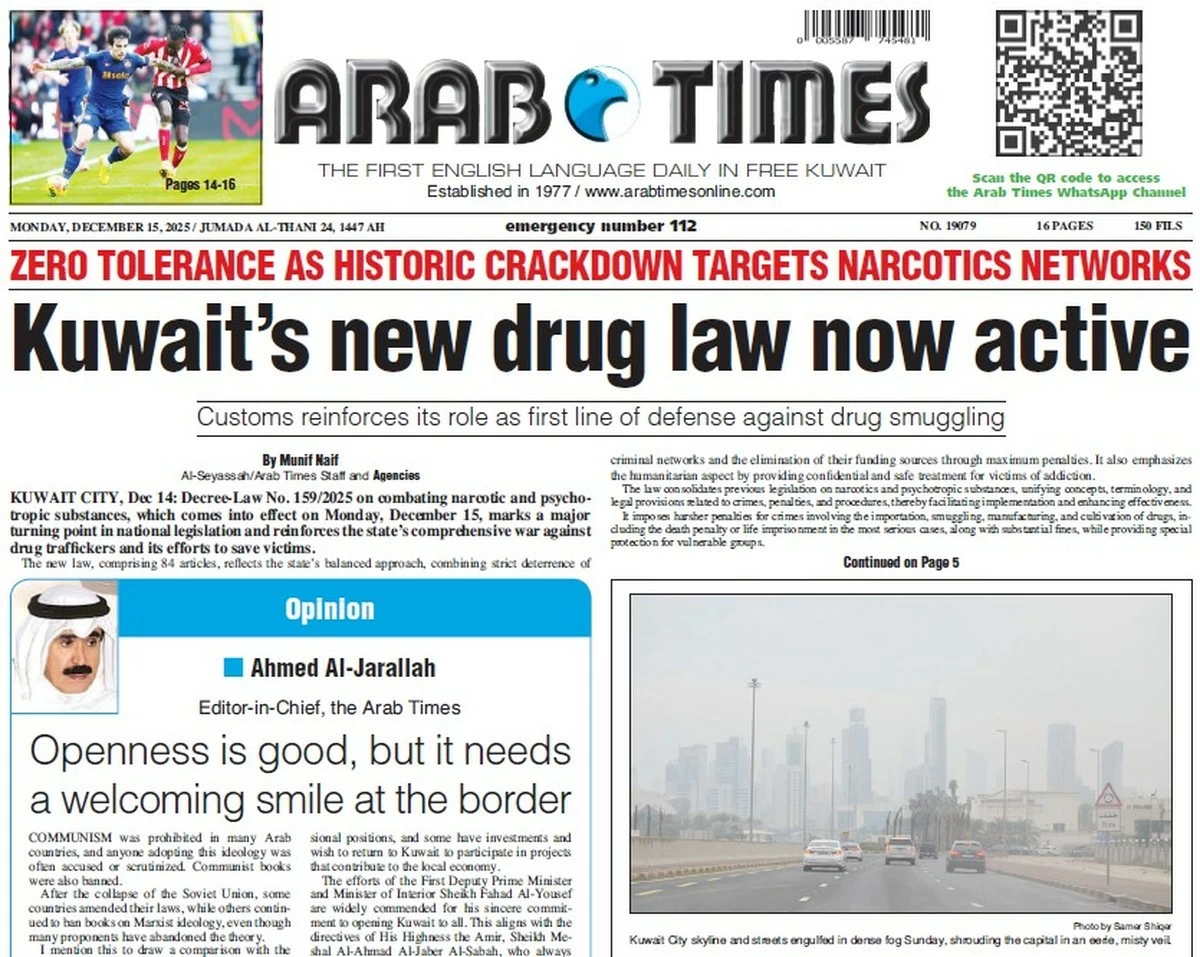23/02/2025
23/02/2025

KUWAIT CITY, Feb 23: The Criminal Court has urged Kuwaiti lawmakers to reconsider the current legislation on psychotropic substances, highlighting that these substances have evolved into a serious social issue that demands a comprehensive review of the laws. The court emphasized the need for stronger punitive measures that align with the severe damage caused by drug dealers and smugglers. In a landmark ruling, the court, presided over by Counselor Meteb Al-Ardi with judges Sharif Al-Mahi and Omar Al-Otaibi as members, sentenced four individuals to 15 years in prison and others to 10 years for their involvement in drug smuggling and bribery. Several individuals (employees at the Customs Department) were dismissed for negligence and accepting bribes in exchange for allowing the smuggling of prohibited substances.
The court’s ruling is considered a stark warning, stating that the increasing prevalence of psychotropic substance cases has surpassed the capacity of existing legislative tools --both punitive and therapeutic. These cases, once isolated, have now become a widespread and dangerous social phenomenon that demands urgent reform. The court pointed out that, while penalties for such substances were initially aligned with the relatively mild impact of these drugs, they have since become more harmful and deadly than narcotics. The misuse of these substances causes significant damage to brain cells, making it critical for the legislature to create new policies and deterrent penalties that reflect the severity of the damage caused by drug traffickers, dealers and smugglers.
The ruling further emphasized the need for stricter penalties for employees whose duties involve controlling or preventing the entry of psychotropic substances. These employees must face harsh penalties if they intentionally neglect their responsibilities. Moreover, the court called for a complete overhaul of procedures related to combating these substances, including enhanced tools for detection and prosecution, as well as more advanced penalties and preventive measures suited to modern times. It also stressed the importance of establishing specialized treatment centers for addicts, distinct from psychiatric hospitals, and equipped with trained medical personnel and state-of-the-art treatment methods.


